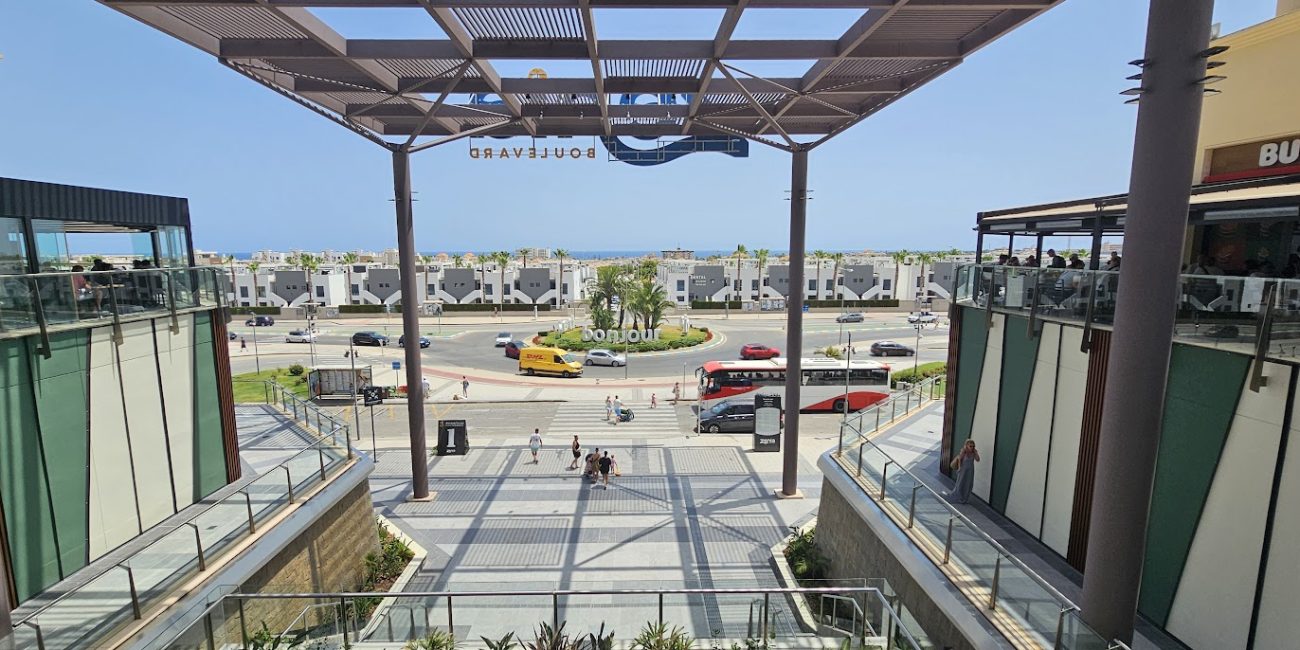Another summer brings lengthy taxi lines in Orihuela Costa, especially near the largest shopping mall in the province, La Zenia Boulevard.
This situation occurred last season—even into October—for the first time since 2017, when the agreement with Torrevieja to share resources with the Orihuela coast was not renewed, which has not been done this year. The municipality, the largest in the province, with a surface area of 365.36 square kilometres, has convoluted territorial organisation and mobility due to a lack of public transit, which is exacerbated by a taxi shortage.
The law requires one taxi for every thousand registered inhabitants, and Orihuela has approximately 86,000, with 30,000 concentrated on the coast, where there is a significant number of floating residents conditioned by the large number of tourist accommodations, allowing them to reside in the municipality almost all year round—although this does not appear in the statistics—and even reaching 100,000 during the summer. The municipality has 42 licenses, 25 of which are active on the coast, and none have been issued since 2005.
Meanwhile, the Official Provincial Gazette (BOP) published the terms and conditions for issuing eight new licenses inside the municipality on Friday, with a 20-day deadline for applications, resuming a process that had been halted since 2022.
On May 20th, the governing board accepted these guidelines, which provide that half of the licenses (four) will be tied to the provision of services with cars designed for people with limited mobility.
However, the salaried taxi driver sector disagrees and has filed appeals against the fifth portion of the competition. Section 5.2 assigns a score of half a point for each complete month spent as a salaried or self-employed driver in the Orihuela area, and 100 points if the applicant is jobless and registered with the INEM (National Employment Institute).
Other scores include languages, which at grade C2 can reach up to 350 points, as well as a course in caring for individuals with impairments, which can be worth up to 300 points.
In the upcoming competition in 2022, the score for work experience was 1 point for every hour worked, and being registered with the INEM (National Institute of Employment and Social Security) added 2 points. According to the group, the score for this new application is 90 points for a motorist who has been working for 15 years and 100 points for an applicant who has never worked and is unemployed. Alternatively, a person who has never worked as a cab driver but holds a C2 license would gain 350 points, while an applicant who has completed a course in caring for individuals with impairments may earn up to 300. An individual who has been a salaried driver for fifty years receives the same amount of points.
Drivers also believe that employment experience within the municipality should be differentiated, as originally planned, with half of the points awarded for experience outside of Orihuela.
All of this, they argue, produces “a great injustice,” because the Valencian Community’s taxi statute, in the part on new permits, states that the first condition is work experience.
Judicial Journey
It should be noted that in 2022, the City Council gave 15 permits despite the regional ministry’s authorisation for 30, a move that led to administrative litigation throughout the PSOE and Ciudadanos governments. This process resulted in an agreement with the taxi sector on April 12th, 2023, which reduced the number to eight.
A May 2023 verdict forced the City Council to put the licenses up to bid. A year later, the court issued a notice to the local administration, giving it five working days to demonstrate compliance with the court’s order. In September, after receiving no response, the group of paid drivers petitioned Elche’s Administrative Litigation Court No. 1 to renew their appeal to the City Council. In December, they requested that the court impose a daily punishment until Councillor for Transport, Víctor Sigüenza, followed the agreement.









No Comment! Be the first one.